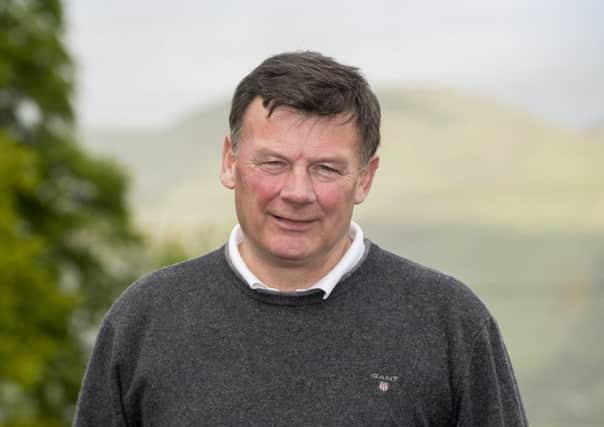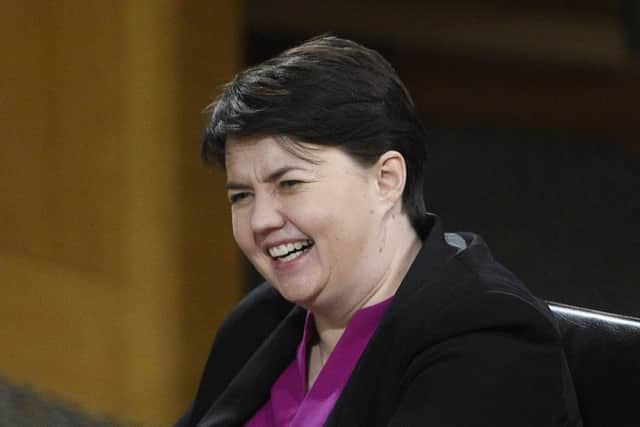Working together '˜only way for post-Brexit farming'
This article contains affiliate links. We may earn a small commission on items purchased through this article, but that does not affect our editorial judgement.


Speaking on the first day of NFU Scotland’s AGM and annual conference in Glasgow, union president Allan Bowie said that despite all the down sides, Brexit provided the country with an opportunity to shape and influence a new agricultural policy: “But we need common sense to make it work.”
Bowie said that getting the right trading conditions was the key factor in moving towards a farming strategy which was less reliant on support.
Advertisement
Hide AdAdvertisement
Hide Ad“We need pragmatism in drawing up a plan which will help to deliver this – with political baggage left at the door,” he said, adding that, while it might be inevitable that self-interest – on a national or sector level – could enter into the discussions at some stage, political dogma and the tensions it could cause had no role to play during the crucial early stages of the discussions.


“What we need is the sort of support and commitment from our politicians that we’re currently seeing from consumers – who recognise not only the value of the food and drink we produce but also the blood sweat and tears which we as farmers put into it.”
He said that farming should be afforded the same consideration as other sectors – citing reports that the UK government would fight for a possible “special deal” for the car industry.
But while the shape of the future trading conditions were paramount, a need would still remain for support measures, he said, “more so for some sectors than others”.


The union’s chief executive, Scott Walker, said that it was “inconceivable” that the UK government would seize powers which had long been devolved to Scottish agriculture under EU measures and repatriate then back to Westminster.
However, while Walker said that there had been a massive increase in the union’s lobbying at Westminster – which he said went “beyond the agricultural ministers” and extended directly to those lobbying the UK’s exit – for the first time in many years no Westminster politicians had made the trek northwards for the union’s meeting.
Wake-up call, not comedy
While recent reports of the courgette crisis and the rationing of lettuce had been used primarily for comedic effect in the media, union chief executive Scott Walker said that the issue should be viewed as a “wake-up call” on food security.
Advertisement
Hide AdAdvertisement
Hide Ad“UK food security levels have fallen from 75 per cent in 1991 to 62 per cent now, and 14 August marks the day in the year when the British larder would be bare if we fed the nation only on British food,” he said.
“Could you imagine the political storm if headlines had been about no beef, no bread or no milk, instead of no lettuce or courgettes?
“As we debate our post-Brexit future, the clear message for policymakers is a robust production base is essential, food security is important and supply chains that deliver a fair reward to all are a must.”
Who runs what ‘up for debate’
There was little sign of any sudden outbreak of entente cordial developing when Scottish Conservative leader Ruth Davidson addressed the meeting.
“There will, I am sure, be an almighty political row over the coming months about whether Holyrood or Westminster should be running agriculture,” she warned.
Davidson said that, in her view, the issue should be addressed in a pragmatic way – and that while some of the major issues would be best decided at devolved administration level, other decisions would be best taken on a UK-wide basis.
“The Prime Minister made it clear that there will be no powers which have been devolved taken back to Westminster. But some decisions need to be taken there.”
Davidson said issue of where these powers should lie was up for negotiation, adding: “For many issues it is likely to be an obvious a case of ‘where does it best sit’. While I understand that everyone wants answers now, some of those answers are yet to be given”
Advertisement
Hide AdAdvertisement
Hide AdHowever, she was clear on one issue, stating that a further independence referendum would be to the detriment of the farming industry.
“I think it would be foolhardy for us to place barriers within our own UK domestic market,” she said. “I don’t see the up side in leaving one complex regulatory regime in Brussels, only to burden farmers with two regulatory regimes within the UK.
“At the same time, I think it is vital that the distinctive needs of Scottish farmers are heard and that the welcome moves towards regionalisation within the EU over recent years are not stymied.”
